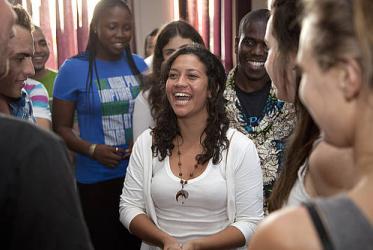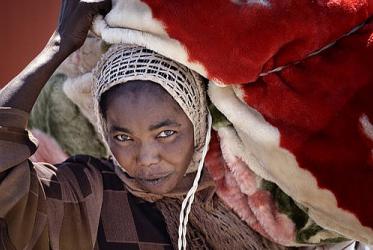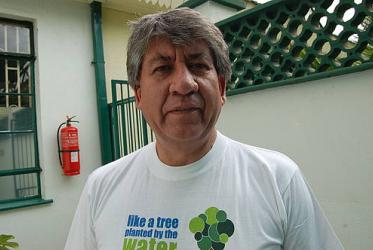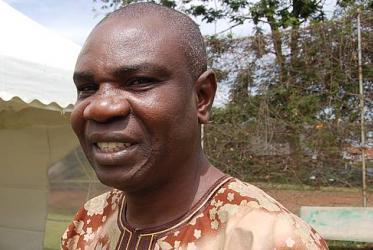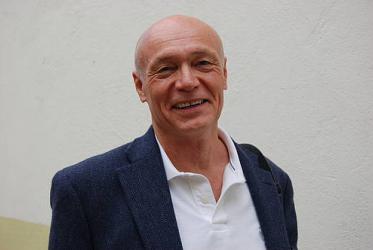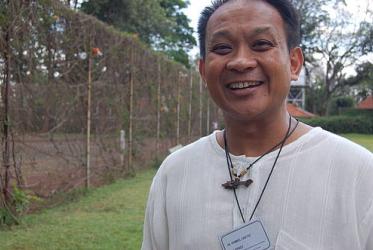Displaying 1621 - 1640 of 1877
20 December 2011
Youth promise active involvement for environmental justice
14 December 2011
Durban outcome is not enough, says WCC
13 December 2011
Churches will tackle migration issues in Beirut
30 November 2011
New WCC statement on mission and evangelism in process
29 November 2011
The world of mission and evangelism experiences big changes
29 November 2011
Religious voices advocate for climate justice at Durban
28 November 2011
Before Durban climate talks, Brazilian ecumenists think about Rio+20
23 November 2011
Working for eco-justice is the mission of church
07 November 2011
Ecumenical Water Network breaks new ground
03 November 2011
Seeking government partnership for water justice
31 October 2011
Climate change is at its root a spiritual crisis
28 October 2011
Steering for human rights to water
28 October 2011
Sustainable water projects need ownership
28 October 2011
Ecumenical journal analyses greed in global economics
27 October 2011
Water: a political issue needing political solution
27 October 2011
Water crisis in Tuvalu
13 October 2011

